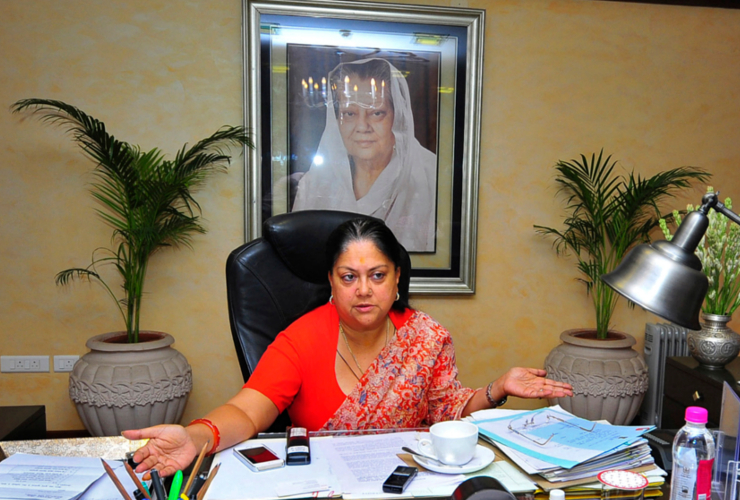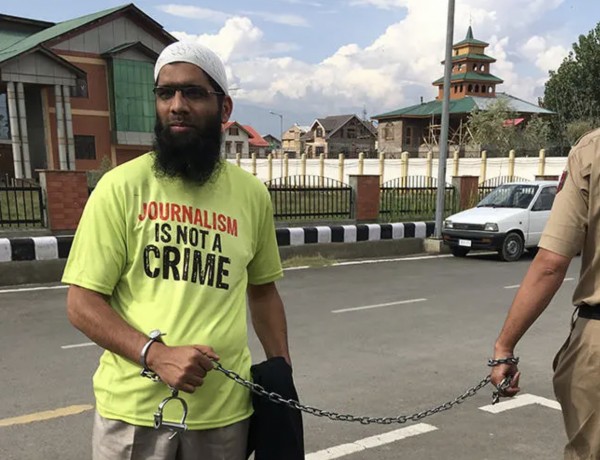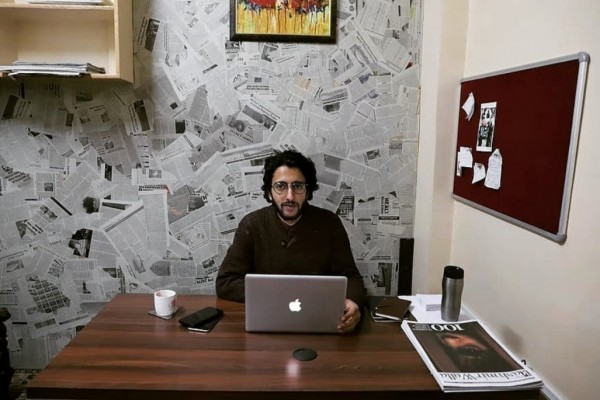The government of the northwestern Indian state of Rajasthan must reverse a “draconian” ordinance that bars the media from covering allegations of wrongdoing involving public officials in the absence of a government-sanctioned criminal investigation, the International Press Institute (IPI) said today in letters sent to Indian Prime Minister Narendra Modi and Rajasthan Chief Minister Vasundhara Raje.
Passed on Sept. 7 – but only recently made public – the ordinance requires courts and law enforcement to obtain government approval before investigating judges, magistrates and public officials for alleged wrongdoing committed in the course of carrying out public duties.
It further mandates that “… no one shall print or publish or publicize in any manner the name, address, photograph, family details, or any other particulars which may lead to disclosure of identity of a Judge or Magistrate or a public servant” who is the subject of allegations until such sanction is obtained.
Journalists or others who contravene the latter provision face up to two years in prison.
Last week, the Rajasthan government submitted a bill to the state’s legislative assembly that would make the changes permanent via an amendment to the state’s code of criminal procedure.
Mr. Narendra Modi,
Prime Minister of India,
South Block,
New Delhi.
Fax: 91 11 23010233
Dear Prime Minister,
The International Press Institute (IPI) is deeply concerned by the issuance of an ordinance under the Constitution of India by the Governor of the State of Rajasthan, amending the Criminal Laws Act of the State, on the advice of the Government of Rajasthan.
The ordinance, which claims to protect public servants, judges and magistrates facing “false” allegations of corruption and criminality, prohibits the media from publishing any report on such allegations, even with accompanied by evidence, until an appropriate authority of the Government has considered the complaints and given sanction for the initiation of prosecution proceedings.
The concerned authority has been given a time limit of six months to take a decision on whether to prosecute or not to prosecute. Until then, media outlets are completely prohibited from writing any details on the allegations. Publishers, editors, journalists or printers who violate this ordinance – which was issued secretly without any public discussion – face up to two years in prison.
We now understand that the Government of Rajasthan has introduced a bill in the State Legislative Assembly to convert the draconian provisions of the ordinance into permanent state law.
IPI strongly condemns the gagging of the press through this ordinance. The measure, signed by the Governor of Rajasthan on the advice of the Government of Rajasthan, violates Art. 19 of the Indian Constitution, which enshrines freedom of expression. It not only places prior restraint on free and fair reporting, but it also threatens editors and journalists with imprisonment.
Eminent jurists, journalists and journalist organisations as well as senior political leaders have strongly opposed the ordinance and have called for its immediate withdrawal. However, the Government of Rajasthan, instead of answering this call, has chosen to seek to make this ordinance permanent law by introducing a bill in the State Assembly.
Mr. Prime Minister, you recounted recently how you had participated in the political struggle against the censorship of newspapers during the infamous Emergency which was in force in India between 1975 and 1977. In this same spirit, IPI calls upon you to intervene with the Government of Rajasthan, and direct the state Government to immediately negate the ordinance through the Constitutional route, and withdraw the bill now under the consideration by the State Assembly.
Such an action would demonstrate your commitment to freedom of the press, and would ensure that acts of corruption and criminality are not shielded behind the curtain of censorship.
Awaiting your positive response,
Yours sincerely,
Barbara Trionfi
Executive Director
International Press Institute
Mrs. Vasudhara Raje,
Chief Minister of Rajasthan,
Jaipur, India.
Email: [email protected]
Fax: 91 141 2227687
Dear Chief Minister,
The International Press Institute (IPI) is deeply concerned by the issuance of an ordinance under the Constitution of India by the Governor of the State of Rajasthan, amending the Criminal Laws Act of the State, on the advice of the Government of Rajasthan.
The ordinance, which claims to protect public servants, judges and magistrates facing “false” allegations of corruption and criminality, prohibits the media from publishing any report on such allegations, even with accompanied by evidence, until an appropriate authority of the government has considered the complaints and given sanction for the initiation of prosecution proceedings.
The concerned authority has been given a time limit of six months to take a decision on whether to prosecute or not to prosecute. Until then, media outlets are completely prohibited from writing any details on the allegations. Publishers, editors, journalists or printers who violate this ordinance – which was issued secretly without any public discussion – face up to two years in prison.
We now understand that the government headed by you has introduced a bill in the State Legislative Assembly to convert the draconian provisions of the ordinance into permanent state law.
IPI strongly condemns the gagging of the press through this ordinance. The measure, signed by the Governor of Rajasthan on the advice of the Government of Rajasthan, violates Art. 19 of the Indian Constitution, which enshrines freedom of expression. It not only places prior restraint on free and fair reporting, but it also threatens editors and journalists with imprisonment.
Eminent jurists, journalists and journalist organisations as well as senior political leaders have strongly opposed the ordinance and have called for its immediate withdrawal. However, the Government of Rajasthan, instead of answering this call, has chosen to seek to make this ordinance permanent law by introducing a bill in the State Assembly.
Madam Chief Minister, IPI calls upon you to intervene in this matter and advise the Governor to issue an ordinance that would negate the provisions of this ordinance. We further call upon you to direct your government to withdraw the bill now under the consideration ´by the State Assembly.
Such an action would demonstrate your commitment to freedom of the press, and would ensure that acts of corruption and criminality are not shielded behind the curtain of censorship.
Awaiting your positive response,
Yours sincerely,
Barbara Trionfi
Executive Director
International Press Institute



